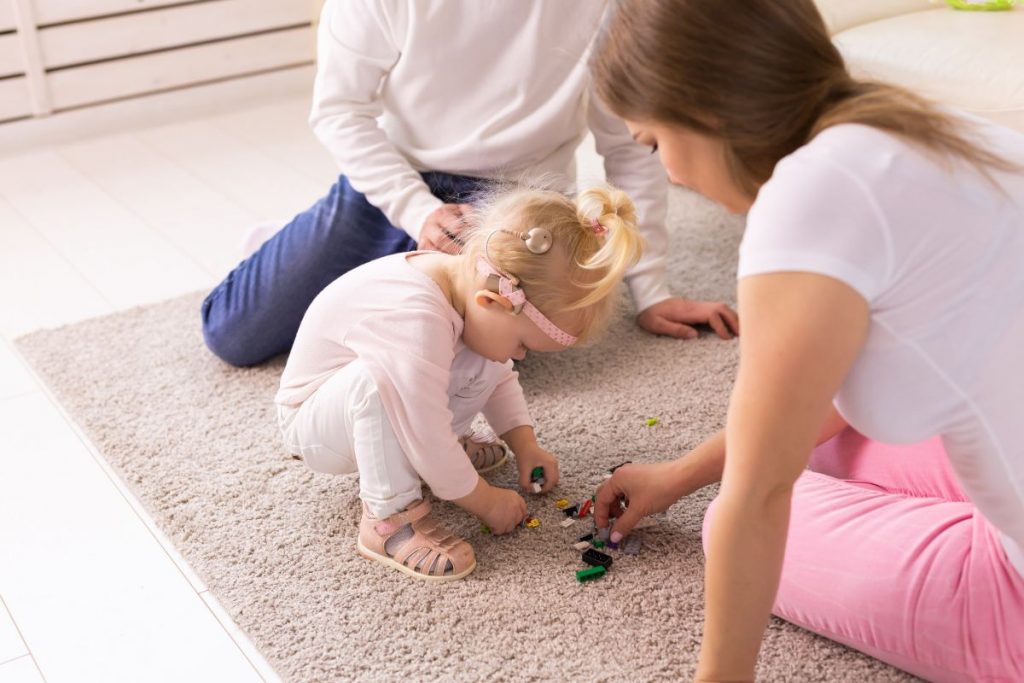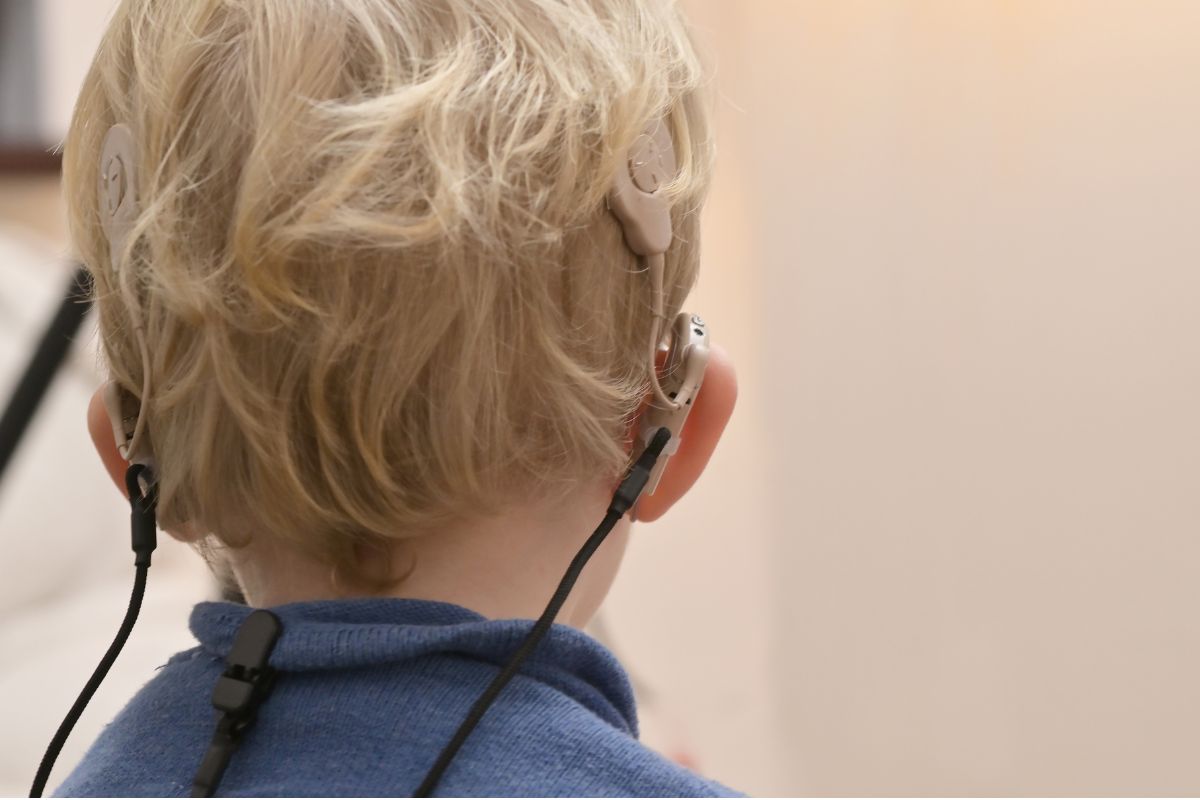Introduction - Understanding a cochlear recipients journey
In this article, Dr Shree Rao talks about how to support your loved ones with cochlear implants. She is the Best Doctor for Cochlear Implants.
As individuals embark on the journey of supporting a loved one with cochlear implants, they find a valuable ally in EarSurgeon, a compassionate and experienced Dr Shree Rao. With her extensive knowledge about cochlear implants and their benefits, Dr. Shree Rao offers invaluable guidance and reassurance throughout the entire process. Her genuine embrace of the decision to undergo the surgery provides comfort and confidence to both patients and their families. Throughout the pre- and post-operative phases, Dr. Shree Rao extends emotional support, recognizing the significance of this transformative step. She takes pride in celebrating her patients’ achievements in auditory training and speech therapy, acknowledging the unique progress made by each individual. Dr. Shree Rao’s unwavering patience and encouragement serve as a constant source of motivation as patients adapt to the implant and learn to interpret sounds with newfound clarity.
In various social settings, Dr. Shree Rao advocates for her patients’ needs, ensuring they receive the necessary support and accommodations for effective communication. By encouraging participation in support groups, she fosters a sense of belonging and creates a supportive environment for patients and their families to thrive.
With unwavering empathy and dedication, Dr. Shree Rao plays a pivotal role in guiding her patients toward hearing restoration and an improved quality of life. Her commitment to their well-being makes her an indispensable part of their journey, providing a comforting and supportive presence at every step.
Getting accustomed to the adjustment period
- Understanding the adjustment period – Recognize that the period following cochlear implant surgery can be overwhelming and exciting for the individual.
- Offer patience and empathy – Provide understanding and emotional support during this journey of hearing restoration.
- Participate in auditory training and speech therapy – Engage in these sessions with the person to encourage their progress and improvement in communication skills.
- Addressing challenges – Identify and address any difficulties or frustrations the individual may face, offering assistance and celebrating milestones achieved.
- Create a positive environment – Maintain a positive and uplifting atmosphere to boost the person’s confidence and motivation.
- Respect individual progress – Understand that each person’s journey is unique and progresses at their own pace.
- Support in different listening environments – Accompany the individual to explore various listening environments and social settings.
- Advocate for accommodations – Stand up for their needs in educational settings and promote inclusive communication in social gatherings.
- Raise awareness – Promote awareness and understanding about cochlear implants to build a more inclusive and accessible world.
- Unwavering support – Provide continuous support, ensuring the person feels encouraged and empowered throughout the adjustment period.
Assisting with post-surgery care

Assisting with post-surgery care for a loved one with a cochlear implant involves providing essential support during the recovery period. This includes managing medication, wound care, and monitoring for complications. Encouraging rest, offering nutritional support, and assisting with mobility are crucial for a smooth healing process. Emotional support and celebrating milestones, such as activation day, play a significant role in boosting confidence and promoting well-being. Educating others about cochlear implants and fostering a supportive environment further enhances the individual’s journey toward better hearing and communication. Above all, patience, understanding, and empathy are essential in helping them navigate the transformative experience of hearing restoration.
Supporting auditory training and rehabilitation
Supporting auditory training and rehabilitation is crucial for helping a loved one with cochlear implants optimize their hearing abilities. It involves collaborating with professionals, such as audiologists and speech-language pathologists, to understand the recommended exercises and programs tailored to their needs. Incorporating auditory training into everyday activities at home, such as engaging in conversations and listening to music, can aid in speech comprehension and sound recognition. Patience and encouragement are essential, as progress may take time. Creating a supportive environment with minimal distractions can enhance their learning experience. Regularly monitoring progress and engaging in speech therapy complement the auditory training process. Celebrating achievements and promoting social interactions further boost their confidence and overall success in embracing their cochlear implant’s transformative power.
Navigating social interactions
Navigating social interactions can be a significant aspect of a loved one’s journey with cochlear implants. It is essential to create an inclusive and understanding environment where they feel comfortable participating in conversations and social gatherings. Encourage friends and family members to face the person directly while speaking, allowing them to lip-read and pick up visual cues. Using clear and concise speech, without exaggerating, can facilitate better communication.
In group settings, consider reducing background noise or choosing quieter locations to make it easier for them to focus on conversations. Educate close friends and acquaintances about the cochlear implant and how they can support effective communication. Remind others to speak one at a time, allowing the person with the implant to follow the conversation more easily.
During social events, be patient and allow them time to process information. Offer support by summarizing key points or providing additional context if needed. Encourage them to ask for clarification if they miss something, fostering an open and understanding atmosphere.
Incorporating communication strategies, such as using gestures or writing down important information, can also enhance interactions. Celebrate their progress and efforts in navigating social situations, as it can boost their confidence and encourage continued engagement in social activities.
Furthermore, addressing the social stigma surrounding hearing aids and cochlear implants is crucial. Some individuals may perceive cochlear implants as a handicap or associate them with limitations, leading to discrimination or exclusion. By promoting awareness and understanding, we can challenge these misconceptions and foster an inclusive environment where individuals with implants feel accepted and valued.
Empathy and support from family, friends, and the broader community are instrumental in helping those with cochlear implants lead fulfilling and enriching lives. Through patience, understanding, and a commitment to inclusivity, we can create a supportive network that allows our loved ones to thrive with their cochlear implants and embrace the world of sound around them.
Addressing emotional and psychological needs

- Providing empathy and active listening to allow the loved one to express their feelings and concerns openly.
- Understanding the psychological impact of hearing loss and the journey of regaining hearing through a cochlear implant.
- Encouraging them to seek professional counseling or support groups to process emotions and build coping strategies.
- Celebrating their milestones and progress, no matter how small, to reinforce their confidence in the journey.
- Being patient and compassionate during moments of frustration or adjustment challenges.
- Creating a positive and encouraging environment at home, engaging in activities they enjoy and practicing listening skills.
- Encouraging family members and friends to communicate openly and effectively, fostering a supportive atmosphere.
Creating an inclusive environment
In creating an inclusive environment for individuals with cochlear implants, it is essential to educate family, friends, and colleagues about cochlear implants and hearing loss. By increasing awareness and understanding, misconceptions and stigmas can be addressed, fostering empathy and acceptance. During interactions, it is beneficial to speak clearly and face the individual with the cochlear implant to ensure they can visually follow the conversation. Avoiding speaking too loudly or shouting is crucial, as it may distort sounds for the individual with the implant. Using visual cues like gestures and facial expressions can aid communication and make interactions more effective. By including the individual with the implant in social activities and gatherings, they can feel valued and part of the group. Additionally, advocating for the use of assistive listening devices in public spaces can improve accessibility for individuals with hearing loss. Overall, promoting a culture of empathy, respect, and understanding allows for a supportive environment where everyone’s unique needs and abilities are accommodated.
Conclusion
In conclusion, having the support and guidance of Dr. Shree Rao can significantly impact the journey of a loved one with a cochlear implant. Dr. Shree Rao’s extensive knowledge and expertise in cochlear implants provide invaluable guidance and reassurance throughout the entire process. As a caregiver, always being there to offer emotional support, encouragement, and patience during the adjustment period is vital to their well-being and overall experience with the implant.
Assisting with post-surgery care, promoting auditory training and rehabilitation, and navigating social interactions are essential aspects of this role. Dr. Shree Rao’s unwavering dedication in addressing emotional and psychological needs and creating an inclusive environment further enhances their journey towards better hearing and communication.
By actively participating in their journey and celebrating milestones, caregivers, alongside Dr. Shree Rao, empower their loved ones to embrace the transformative power of cochlear implants fully. Understanding the unique challenges and triumphs that come with this experience strengthens the bond between the caregiver, Dr. Shree Rao, and the individual with the implant. Ultimately, being a supportive and empathetic presence, combined with the expertise of Dr. Shree Rao, is key to helping them thrive and fully enjoy the world of sound around them.

Why consult EarSurgeon, Dr. Shree Rao?
Dr. Shree Cuddapah Rao is acclaimed as one of the best pediatric ENT specialists in Hyderabad. With 10+ years of deep domain experience in the field of ENT, she is the director at Dr. Rao’s ENT Super Specialty Hospital. She underwent specialized training in Rhinoplasty / Facial Plastic surgery at Singapore General Hospital, Singapore. She also underwent advanced training in cochlear implant surgery under Padmashri Dr. Milind V Kirtane and had a Fellowship in a cochlear implant. Having performed over 200 successful cochlear implants for patients worldwide, Dr. Shree Cuddapah Rao is also the recipient of several prestigious accolades in the domain of ENT. Dr. Shree Rao is one of the best ent doctor in hyderabad, to book an appointment click here.
Are you looking for
then you have landed at right place!






